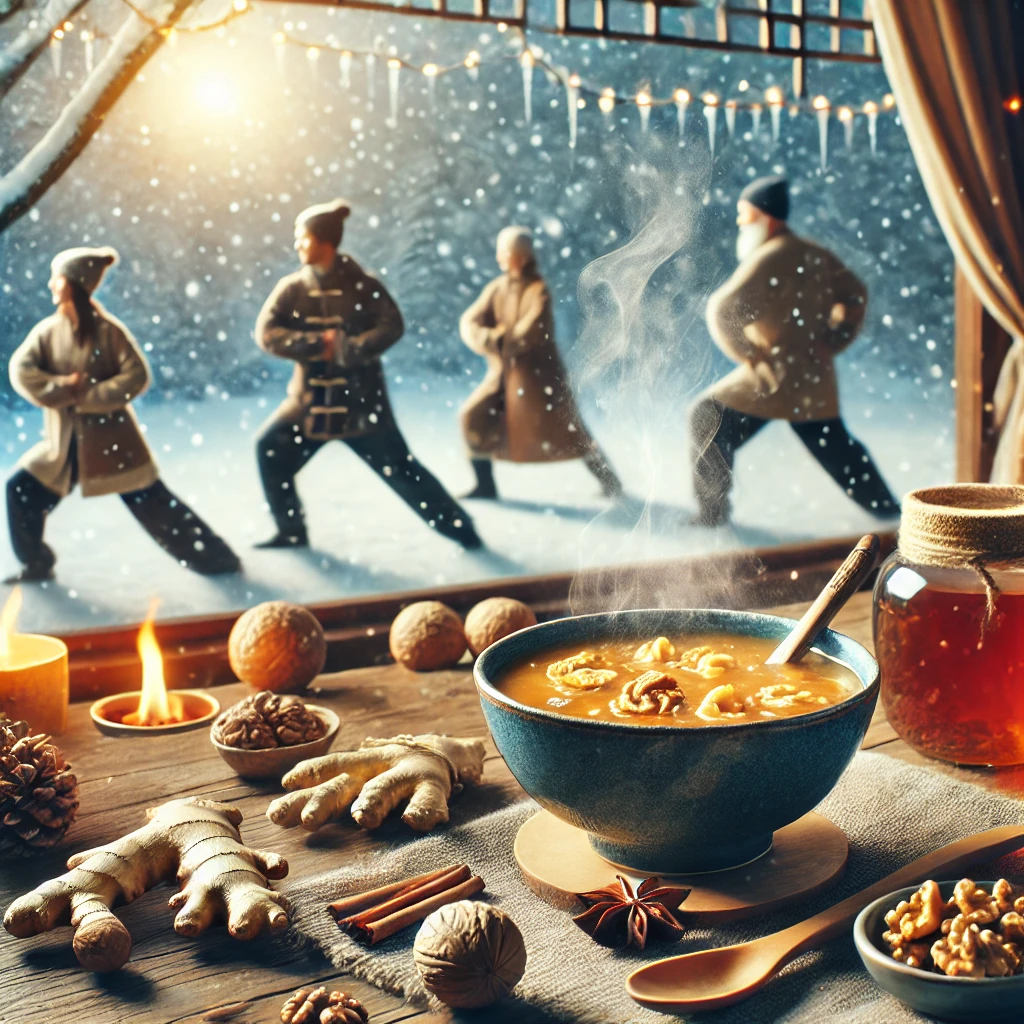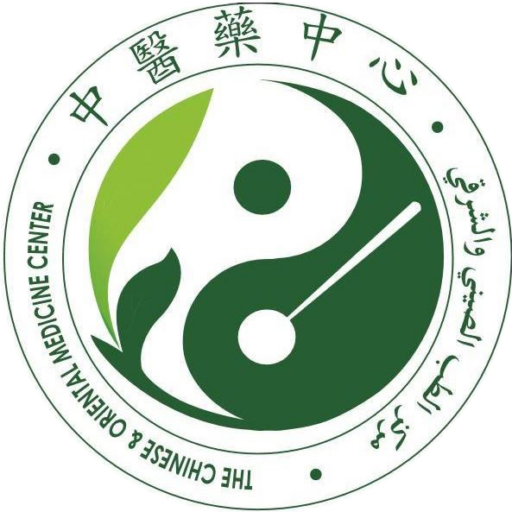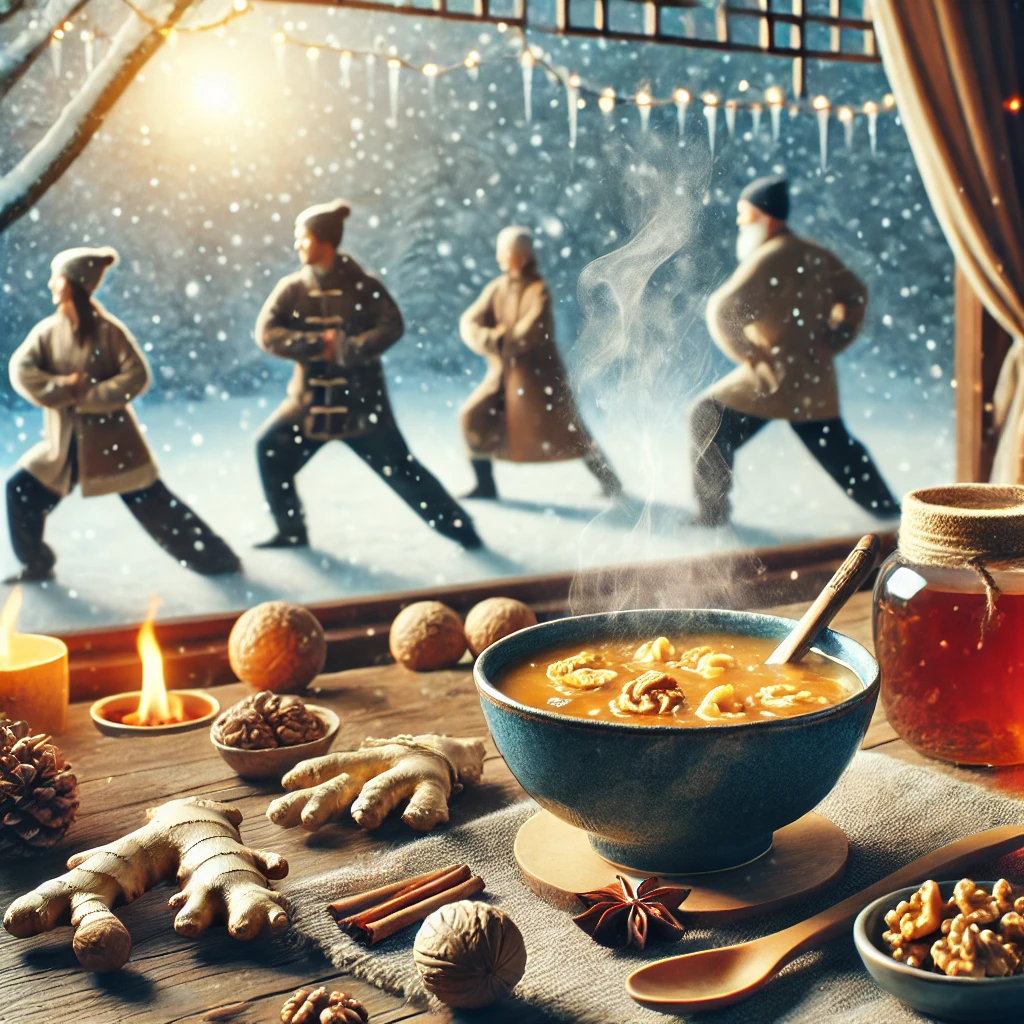
Winter, the season associated with the Water element and the Kidney (肾, Shèn) organ in Traditional Chinese Medicine (TCM), plays a crucial role in maintaining health. According to TCM principles, winter is a time to conserve Yang (阳, Yáng) energy, strengthen the body’s internal warmth, and protect against the cold. This essay explores how winter adaptations in daily life can align with TCM recommendations, focusing on practices that preserve vitality and prevent illness.
- Conserving Yang Energy
In TCM, the Kidney (肾, Shèn) is regarded as the organ that stores Essence (精, Jīng) and governs vitality, strength, and warmth. During winter, the cold weather naturally weakens Yang energy, which is associated with warmth, activity, and expansion. Therefore, conserving Yang energy is essential.
One primary way to conserve Yang is by prioritizing rest (休息, Xiūxí) and sleep (睡觉, Shuìjiào). TCM suggests that winter is a time to sleep more and avoid overexertion, as the longer nights provide an ideal environment for restorative rest. Going to bed earlier and waking later can help preserve the body’s energy reserves. Additionally, avoiding excessive physical activity and striving for moderation (适度, Shìdù) in exercise can prevent depleting the Yang energy necessary for resilience in the colder months.
- Keeping Warm
Maintaining warmth is essential for protecting the body (保护身体, Bǎohù shēntǐ) against the external cold, which can enter the body and disrupt the circulation of Qi (气, Qì) and blood. In winter, the body is more susceptible to cold-induced illnesses like colds and flu. One of the most fundamental precautions is wearing warm, layered clothing to prevent cold from penetrating the body, especially around the lower back (腰部, Yāobù) and kidneys (肾, Shèn), which are vulnerable to cold exposure.
Additionally, consuming warm foods (温暖食物, Wēnnuǎn shíwù) and drinks (饮品, Yǐnpǐn) is recommended. TCM advises against raw and cold foods, as they can weaken digestion and deplete the Yang energy of the Spleen (脾, Pí). Warm, nourishing meals like soups (汤, Tāng) and stews (炖菜, Dùn cài) help promote digestion and support internal warmth. Spices such as ginger (姜, Jiāng), cinnamon (肉桂, Ròuguì), and garlic (大蒜, Dàsuàn) are also used to enhance warmth and protect against cold.
- Nourishing the Kidneys
The Kidneys (肾, Shèn) are particularly susceptible to cold in winter, and their health is critical for overall vitality. TCM emphasizes the importance of nourishing Kidney Qi (肾气, Shèn qì) and Kidney Essence (肾精, Shèn jīng) to maintain balance during the colder months.
To nourish the Kidneys, foods that are rich in nutrients and warming in nature are recommended. Black beans (黑豆, Hēidòu), walnuts (核桃, Hétáo), and bone broth (骨头汤, Gǔtou tāng) are examples of foods that support Kidney health. Herbal remedies like Rehmannia (地黄, Dìhuáng) and Cordyceps (虫草, Chóngcǎo) are also commonly used to tonify the Kidneys, boost energy, and strengthen immunity.
- Exercise in Moderation
While TCM advocates movement (运动, Yùndòng) for health, the approach to exercise in winter differs from other seasons. Vigorous, outdoor activities should be avoided during extreme cold, as they can lead to injury or Qi stagnation (气滞, Qì zhì) due to the body’s compromised Yang energy. Instead, moderate exercises (适度运动, Shìdù yùndòng) such as Tai Chi (太极, Tàijí) and Qigong (气功, Qìgōng) can promote circulation, warmth, and flexibility without overexerting the body.
- Preventing Cold Invasion
According to TCM, cold exposure can invade the body (寒气入侵, Hán qì rùqīn) and disrupt the balance of the body’s internal energy. To prevent this, it is important to avoid drafts (风寒, Fēng hán) and protect the body from sudden temperature changes (温度变化, Wēndù biànhuà). Dressing in layers is essential, especially to protect the lower back and kidneys (肾, Shèn) from the cold.
In addition, TCM suggests avoiding wind (风, Fēng) and cold during outdoor activities, particularly in the early morning and evening when the cold is more intense. The body’s immune system (免疫系统, Miǎnyì xìtǒng) can be weakened by exposure to these elements, making one more susceptible to illness.
- Emotional Balance
Winter is also linked to the emotion of fear (恐惧, Kǒngjù), which can deplete Kidney Qi (肾气, Shèn qì) if not properly managed. TCM suggests that maintaining emotional balance (情绪平衡, Qíngxù pínghéng) through practices such as meditation (冥想, Míngxiǎng), breathing exercises (呼吸练习, Hūxī liànxí), and mindfulness can prevent emotional stress from negatively impacting the Kidneys (肾, Shèn) and help preserve the body’s inner harmony.
Conclusion
Winter, according to Traditional Chinese Medicine, is a season that requires careful attention to preserving Yang energy (阳气, Yáng qì), keeping warm, nourishing the Kidneys (肾, Shèn), and protecting the body from cold and dryness. By adjusting daily routines to align with TCM principles, individuals can maintain vitality and health throughout the winter months. The focus on rest, warmth, nourishment, and emotional balance offers a holistic approach to staying well and preventing seasonal ailments.
Written by Mr Abdel Moutalib Majdoub
TCM Expert and Doctoral level reseacher in TCM and Psychology

